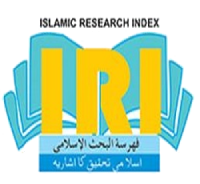A Research Analysis of the Methodologies of Selected Exegeses regarding Mushkilat ul Quran in Khyber Pakhtunkhwa
Keywords:
Mushkilat al-Quran, Tafsir, Ghara'ib al-Quran, Quranic interpretation, linguistic analysis, exegesis, Imam al-Sarakhsī, Sayyid Sharif al-Jurjani, Allama AlusiAbstract
The study investigates the essential concept of Mushkilat al-Quran in Quranic exegesis since it interprets complex and ambiguous Quranic verses. As the final divine revelation the Quran contains numerous difficult linguistic and historical and rhetorical elements which require scholarly analysis to understand properly. The investigation studies Mushkilat al-Quran as it operates within Tafsir to deliver proper interpretation while countering misconstrued theological interpretations. The authors examine classical Islamic scholarship through the methods of Imam al-Sarakhsī and Sayyid Sharif al-Jurjani alongside Allama Alusi as they interpret Quranic ambiguity using language studies and historical context evaluation and rhetorical precision analysis. An adequate interpretation of complex Quranic verses requires complete understanding of both unfamiliar Quranic vocabulary and syntactical formations. The research examines unique Quranic word usage through Ghara'ib al-Quran (peculiarities of the Quran) while showing the need for specialists in classical Arabic language and detailed textual evaluation for interpretation. Analyzing major scholars in the field leads this research to demonstrate the vital need for academic precision during Quranic interpretation of difficult passages. The research demonstrates the present-day necessity of Mushkilat al-Quran for maintaining Quranic authenticity through the generations because scholars need to exercise caution when interpreting challenging verses. This research serves to advance the comprehension of Mushkilat al-Quran as a fundamental Islamic scholarly field it demonstrates the importance of exact interpretation methods for sacred text understanding.
Downloads
Published
How to Cite
Issue
Section
License
Copyright (c) 2025 Nuqtah Journal of Theological Studies

This work is licensed under a Creative Commons Attribution 4.0 International License.
This work is licensed under a Creative Commons Attribution 4.0 International License.




